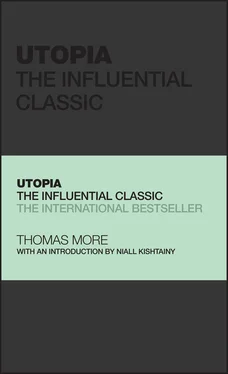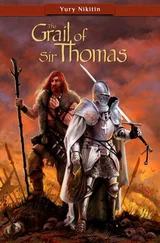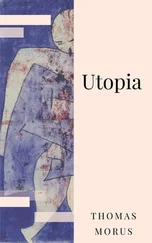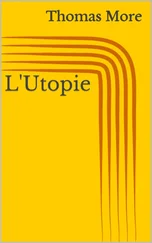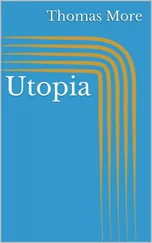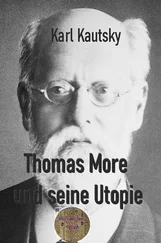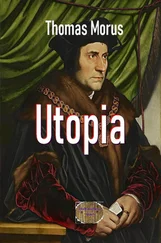1 1991 Baker‐Smith, Dominic, More's Utopia (London, 1991).
2 1935 Chambers, R.W., Thomas More (London, 1935).
3 1974 Elton, G.R., Studies in Tudor and Stuart Politics and Government (Cambridge, 1974–92).
4 1927 Kautsky, Karl, translated by H.J. Stenning, Thomas More and his Utopia (New York, 1927).
5 December 2015 McCutcheon, Elizabeth, Liber Amicorum: A Collection of Essays by Elizabeth McCutcheon, special issue of Moreana, Vol. 52, No. 201–202, Issue 3–4, December 2015.
6 1984 Marius, Richard, Thomas More (New York, 1984).
7 1982 Ridley, Jasper, The Statesman and the Fanatic: Thomas Wolsey and Thomas More (London, 1982).
Niall Kishtainyis a writer with interests in economics and in the history of ideas. He holds a PhD in economics from the University of Warwick and has taught economic history at the London School of Economics. His most recent book, A Little History of Economics , was published by Yale University Press in 2017. He is currently working on a book on the history of London's utopians.
I

LETTER: THOMAS MORE TO PETER GILES
I am almost ashamed, right well‐beloved Peter Giles, to send you this book of the Utopian commonwealth, well nigh after a year's space, which I am sure you looked for within a month and a half. And no marvel. For you know well enough that I was already disburdened of all the labour and study belonging to the invention of this work, and that I had no need at all to trouble my brains about the disposition or conveyance of that matter and, therefore, had nothing else to do but only to rehearse those things which you and I together heard Master Raphael tell and declare. Wherefore there was no cause why I should study to set forth the matter with eloquence; for as much as his talk could not be fine and eloquent, being first not studied for but sudden and unpremeditated, and then, as you know, of a man better seen in the Greek language then in the Latin tongue. And my writing, the nearer it should approach his homely, plain, and simple speech, so much the nearer should it go to the truth; which is the only mark, where unto I do and ought to direct all my travail and study herein.
I grant and confess, friend Peter, myself discharged of so much labour, having all these things ready done to my hand, that almost there was nothing left for me to do. Else either the invention, or the disposition of this matter, might have required of a wit neither base nor at all unlearned, both some time and leisure, and also some study. But if it was requisite and necessary that the matter should also have been written eloquently, and not alone truly, of a surety that thing I could have performed by no time or study. But now, seeing all these cares, stays, and hindrances were taken away, wherein else so much labour and study should have been employed, and that there remained no other thing for me to do but only to write plainly the matter as I heard it spoken, that indeed was a thing light and easy to be done. Howbeit, to the dispatching of this so little business my other cares and troubles did leave almost less than no leisure. While I do daily bestow my time about law matters; some to plead, some to hear, some as an arbitrator with mine award to determine, some as an umpire or a judge with my sentence finally to discuss; while I go one way to see and visit my friend, another way about mine own private affairs; while I spend almost all the day abroad amongst others and then reside at home among mine own, I leave to my myself, I mean to my book, no time.
For when I come home, I must commune with my wife, chat with my children, and talk with my servants. All the which things I reckon and account among business, forasmuch as they must of necessity be done; and done must they need be unless a man will be a stranger in his own house. And, in any wise, a man must so fashion and order his conditions, and so appoint and dispose himself, that he be merry, jocund, and pleasant among them whom either nature has provided, or chance has made, or he himself has chosen to be the fellows and companions of his life: so that with too much gentle behaviour and familiarity he do not mar them, and by too much sufferance of his servants make them his masters. Among these things now rehearsed steal away the day, the month, the year. When do I write then? And all this while I have spoken no word of sleep, neither yet of meals, which among a great number do waste no less time than does sleep, wherein almost half the time of man creepeth away. I, therefore, do win and get only that time which I steal from sleep and meals. Which time, because it is very little, and yet somewhat it is, therefore have I once at the last, though it be long first, finished Utopia and have sent it to you Peter to read and peruse to the intent that if anything has escaped me you might put me in remembrance of it. For though in this behalf I do not greatly mistrust myself (which would God I were somewhat in wit and learning, as I am not all of the worst and dullest in memory), yet have I not so great trust and confidence in it that I think nothing could fall out of my mind.
For John Clement, my boy, who as you know was there present with us, whom I suffer to be away from no talk wherein may be any profit or goodness (for out of this young‐bladed and new‐shot‐up corn, which has already begun to spring up both in Latin and Greek language, I look for plentiful increase at length of goodly ripe grain), he, I say, has brought me into great doubt. For whereas Hythloday (unless my memory fail me) said that the bridge of Amaurot, which goes over the river of Anyder, is five hundred paces, that is to say, half a mile, in length; my John saith that two hundred of these paces must be plucked away, for that the river contains there not above three hundred paces in breadth. I pray you heartily call the matter to your remembrance. For if you agree with him I also will say as you say and confess myself deceived. But if you cannot remember the thing, then surely I will write as I have done, and as mine own remembrance serves me. For as I shall take good heed that there be in my book nothing false, so if there be anything in doubt I will rather tell a lie then make a lie, because I had rather be good than wise.
Howbeit, this matter may easily be remedied if you will take the pains to ask the question of Raphael himself, by word of mouth if he be now with you, or else by your letters; which you must need do for another doubt also, which has chanced through, whose fault I cannot tell, whether through mine or yours or Raphael's. For neither we remembered to inquire of him, nor he to tell us, in what part of that new world Utopia is situated; which thing I had rather have spent no small sum of money than it should thus have escaped us. As well for that I am ashamed to be ignorant of what sea that Island standeth whereof I write so long a treatise; as also because there be with us certain men, and especially one devout and godly man, who is exceeding desirous to go unto Utopia, not for a vain and curious desire to see news, but to the intent that he may further and increase our religion which is there already begun. And that he may the better accomplish and perform this his good intent, he is minded to procure that he may be sent there by the high Bishop, yes, and that he himself may be made Bishop of Utopia; being nothing scrupulous herein, that he may obtain this bishopric with suit. For he counteth that a godly suit which proceeds not of the desire of honour or lucre but only of a godly zeal.
Читать дальше
